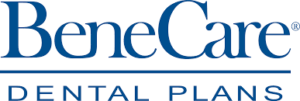Emergency Dentist—Just a Call or Click Away
Quickly connect to an emergency dentist near you for urgent dental care—day or night. Our platform also gives you 24/7 access to an online dentist.
Teledentistry Services
Explore the most common dental emergencies we handle and the services we offer. If you're searching for an emergency dentist, we can connect you quickly for relief and treatment.
Dental Prescriptions
Authorized prescriptions for dental care - accurate, reliable and secure.
At-Home Dental Assessments
Your oral health tells a bigger story. Share photos for a quick at-home check.
Partial Dentures
Missing teeth? Restore your smile with affordable, custom-fit partial dentures from home.
Clear Aligner Screening
Looking for a straighter smile? Check to see if you're a good candidate?
Virtual Dental Visits
Our virtual dental visits bring expert dental advice directly to you, no matter where you are.
Emergency Dental Services
Emergency dental care - available 24/7 when and where you need it.
Common Dental Emergencies
Explore the most common dental emergencies we handle. Severe toothache, broken tooth, or dental abscess? Our emergency dentists are ready to provide urgent dental care. If you're searching for an emergency dentist near me, we can connect you quickly for relief and treatment.
Toothache or Pain
Jaw Injury
Bleeding Gums
Knocked Out Tooth
Swollen Cheek
Chipped or Cracked Tooth
Broken Filling or Crown
Abscess or Swelling
Tooth Sensitivity
Emergency Dental Care Available
Need immediate care or peace of mind? Contact us now to talk to a dentist virtually. Don't wait to be seen - call now.
Providing over 150 million Americans with access to virtual dental care
















Take the Stress out of Paying for Dental Care
With the Lane Health Care Spending Card, you can cover dental treatments - from routine cleanings to emergency dental procedures - without worrying about upfront costs.
.webp?width=867&height=650&name=3%20(1).webp)
Our Easy 3-step Process

Call or Chat with Us Any Time
Our 24/7 dental team verifies your insurance (if you have it) along with your preferred pharmacy.

Access a Dentist Right Away
Based on your dental needs, we'll quickly connect you with a virtual dentist for immediate emergency dental care.

Get Emergency Dental Relief
Following your consultation, any necessary prescriptions will be sent directly to your preferred pharmacy.
At-Home Dental Visit - No Appointment Needed
Get a quick and easy virtual dental health report from the comfort of your own home. Simply upload 4 photos of your teeth, and one of our dentists will provide you with expert tips for a healthier, brighter smile.

24/7 Dental Services
Dental problems don't wait for office hours-and neither should you. With 24/7 virtual dental care, you can connect with a licensed dentist from the comfort of your home.
Affordable & Stress-Free
Covered by major insurance companies, virtual visits are fully covered. If you don't have insurance, virtual dental visits cost less than traditional appointments, saving you money, while still giving you expert care. Catch problems early, and avoid expensive emergencies later.
Fast Relief in Emergencies
Touthaches, swelling, or broken teeth can happen at the worst times. With 24/7 teledentistry, you don't have to wait until morning or risk a trip to the ER.
Find the answers quickly and easily
At Teledentistry.com, we offer fast and convenient responses to dental emergencies. Whether you're experiencing a sudden toothache, a chipped filling, a broken tooth, a gum infection, or another urgent dental issue, our 24/7 online platform connects you with an experienced emergency dentist near you. Access expert dental advice, virtual consultations, and immediate treatment options from the comfort of your home. Our commitment to prompt, reliable, and affordable dental care ensures you receive timely intervention-crucial for pain relief, preventing complications, and achieving positive dental health outcomes.
Teledentistry provides comprehensive emergency dental services, ranging from managing sudden dental pain to addressing complex emergencies. Our platform offers expert care for knocked-out teeth, dental abscesses, lost fillings, broken crowns, and dental bridges. Each dental emergency is unique, and our team of experienced online dentists offers personalized care and advice. No matter where you are or what time it is, you can access expert treatment solutions for your dental emergencies.
Searching for emergency dentists nearby? Gaining access to urgent dental care is very straightforward and user-friendly with our platform here at Teledentistry. If you’re dealing with a dental emergency, our online platform acts as a direct portal to the professional dental care you need. We are committed to providing around-the-clock services, ensuring that you can always find a dentist available to assist you, regardless of the hour. This 24/7 availability is vital for providing peace of mind and ensuring that your dental emergencies are addressed without any unnecessary delays, making Teledentistry a reliable choice for anyone in need of urgent dental care. Call us 24/7 at 1-888-588-3394 or fill out a form here: https://www.teledentistry.com/contact
Traditional dentists typically work 7:30-4:30pm and are not available after hours. Teledentistry.com makes accessing urgent dental care quick and easy since our network of emergency dentists is available all day, every day. Whether you're facing a dental emergency like severe tooth pain or a broken tooth, our 24/7 platform connects you with licensed dentists. Get expert care from a trusted 24-hour emergency dentist, ensuring your urgent dental needs are handled promptly—anytime, anywhere. Trust Teledentistry for fast, reliable care and peace of mind.
Teledentistry offers more than emergency care—schedule regular checkups and preventive care online. Ideal for busy individuals or those who prefer virtual consultations, our platform ensures your oral health isn't neglected. Perfect for those with mobility issues or time constraints, we provide a flexible and convenient solution for all your dental needs.
In situations of severe dental pain or other urgent dental issues, Teledentistry.com offers immediate and effective assistance. Our team of online dentists is adept at evaluating your condition swiftly and providing the necessary advice for managing your dental emergency. We ensure that you receive appropriate guidance on pain management and treatment steps, bridging the gap until you can get in-person care. Prescriptions, if needed, are sent to your preferred pharmacy. Our approach prioritizes your comfort and dental health, ensuring that your urgent dental needs are addressed promptly and with the utmost care.
For those experiencing orthodontic emergencies, such as issues with braces or wires, Teledentistry offers specialized guidance and support. Our online consultations are designed to address and manage such emergencies effectively. We provide immediate advice on how to handle the emergency, offering solutions and guidance until you can receive necessary in-person treatment. This service is part of our commitment to providing comprehensive dental care, ensuring that all aspects of your dental health, including orthodontic concerns, are well taken care of.
Online consultations are a highly effective way to address dental emergencies. Our platform is designed to facilitate clear and direct communication between patients and dental professionals. This setup allows our dentists to provide accurate assessments and develop immediate treatment plans, ensuring your dental emergency is managed with expertise and care. The effectiveness of these consultations is rooted in our commitment to using advanced technology and methods, providing a virtual experience that rivals in-person visits in terms of quality and outcomes.
Responding swiftly in dental emergencies is a cornerstone of Teledentistry’s service. We understand that in dental crises, every second counts. Our platform is engineered to facilitate quick connections between patients and dentists, ensuring minimal waiting times. Whether it’s a sudden onset of pain or a dental injury, you can rely on Teledentistry for immediate attention and care. This rapid response capability is crucial in managing dental emergencies effectively and is a key reason many patients trust Teledentistry for their urgent dental needs.”
When dental emergencies arise, finding prompt, urgent dental care near me is crucial. Teledentistry makes this process effortless. Simply reach out to us, and our team of expert online dentists is at your service. We understand the urgency of situations like toothaches, broken fillings, or other dental pains. That’s why we’re dedicated to providing emergency dental virtual services 24/7. Our virtual platform ensures that no matter where you are, you have access to top-tier emergency dentists near you. It’s teledentistry at its best – immediate, reliable, and always accessible.
In the event of a dental emergency, taking the right immediate steps before consulting with Teledentistry can be crucial. If you’re experiencing bleeding, gently rinse your mouth with warm water. For swelling, apply a cold compress externally. It’s important to avoid any temporary fixes that could potentially worsen the situation. Once these initial steps are taken, contact Teledentistry for a consultation. Our team will provide you with specific instructions and advice tailored to your situation, guiding you through the necessary measures until you receive proper care. And remember, our online dentist team is ready to assess your dental emergency with the utmost care and precision. Our virtual consultation process is designed to be thorough yet swift, ensuring that your urgent dental needs are addressed promptly. Whether it’s a chipped tooth, a lost filling, or any other urgent dental situation, our 24/7 emergency services guarantee a comprehensive evaluation. By choosing Teledentistry, you’re not just getting an assessment; you’re receiving personalized care from a dedicated urgent dentist near me, ready to cater to your specific dental needs.
Emergency Dental Services Available
Need immediate care or peace of mind? Contact us now to talk to a dentist virtually. Don't wait to be seen - call now.
